The 13 Healthiest Root Vegetables
Root vegetables are plants that grow underground. They are packed with nutrients making them some of the healthiest foods on the planet.
Some of these vegetables include onions, sweet potatoes, turnips, ginger, beets, garlic, radishes, fennel, carrots, celeriac, turmeric, potatoes, and rutabaga. Delving into the fascinating world of botany, it's interesting to note that root vegetables are a unique category of plants that have the distinct characteristic of developing their key edible components beneath the surface of the earth. This subterranean growth pattern gives these plants a number of unique properties, including a high concentration of essential nutrients like vitamins, minerals, and fiber, which are densely packed into their fleshy, edible portions. These attributes make root vegetables some of the most health-enhancing foods available on our bountiful planet. Now, let's delve a little deeper into the diversity of root vegetables. This group is not monolithic; it contains a wide array of vegetables, each with its own unique taste profile, texture and nutritional composition. To start with, we have the humble onion, with its pungent flavor and tear-inducing qualities. Then, there's the sweet potato, a root vegetable that's packed with beta-carotene and offers a sweetness that is a delicious contrast to other savory root vegetables.

We also have turnips, which offer a sharp, earthy flavor. Ginger and turmeric, both renowned for their medicinal properties, also fall into this category.
Beets, garlic, radishes, fennel, and carrots are other members of this underground club, each contributing a unique flavor and color to our plates. Celeriac, potatoes, and rutabaga - they're all part of this nutrient-packed group, too. Each of these vegetables offers a unique combination of flavors, textures, and nutritional benefits, making them a versatile addition to a variety of dishes. Whether they're roasted, boiled, steamed, or eaten raw, root vegetables add a hearty, satisfying element to any meal. So, the next time you're planning a meal, don't overlook these underground gems. Their unassuming exteriors hide a trove of nutritional wealth and culinary possibilities.
1. Onions
Onions are a staple in many cuisines. They are low in calories but high in vitamins and minerals, including vitamin C, B vitamins, and potassium.
Onions, the unsung heroes of many a dish, are a kitchen must-have in many cultures and cuisines around the world. Not only do they bring a unique depth of flavor and aroma to a myriad of dishes, but they also pack an impressive nutritional punch. These humble root vegetables are surprisingly low in calories, making them a great addition to any diet, yet they manage to be rich in essential vitamins and minerals. Among these nutrients are vitamin C, known for its immune-boosting properties, and B vitamins, which play a key role in maintaining good health and well-being.
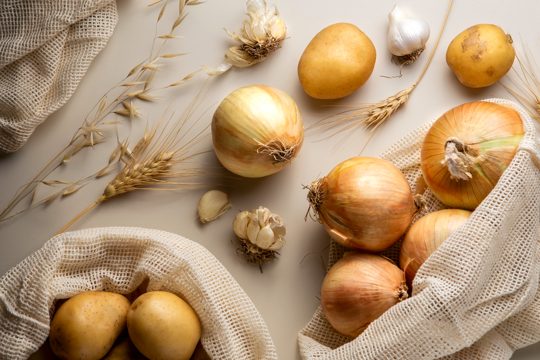
As if that weren't enough, they also contain significant amounts of potassium, a mineral that is crucial in maintaining heart health and regulating blood pressure. But the goodness of onions doesn't end there.
Besides being a powerhouse of nutrition, they are incredibly versatile in the kitchen. From being the base of flavorful broths and sauces to being caramelized for a sweet, complex flavor or simply chopped fresh for salads and garnishes, onions can be used in countless ways to elevate your dishes. So, the next time you slice into an onion, remember that you're not just adding flavor, but a whole host of health benefits, too.
2. Sweet Potatoes
Sweet Potatoes are rich in fiber, vitamins, and minerals. They also contain a good amount of antioxidants that protect your body from free radical damage.
Absolutely! Sweet Potatoes, those vibrant, versatile root vegetables that have earned a spot at almost every dinner table, are not just delicious but extremely beneficial for your health. Packed to the brim with fiber, these tubers aid in maintaining a healthy digestive system, keeping you feeling full and satisfied for longer. This makes them an excellent choice for those looking to manage their weight or control their hunger pangs. Moreover, these nutritional powerhouses are an excellent source of a plethora of vitamins and minerals. They are rich in Vitamin A, which is essential for maintaining good vision, promoting growth, and boosting immunity. They also provide a substantial amount of Vitamin C, potassium, and even calcium.

Each of these nutrients plays a critical role in the body's overall health and well-being, from strengthening the immune system to supporting heart health. But the health benefits of sweet potatoes don't stop there.
They also contain an impressive amount of antioxidants, which are substances that help defend your body's cells against the potential damage caused by harmful free radicals. Antioxidants such as beta-carotene found in sweet potatoes not only give them their distinctive orange hue but also help protect against chronic diseases like heart disease and cancer. So, whether you prefer them baked, roasted, or mashed, sweet potatoes are a delicious, nutritious addition to any meal. Their rich, sweet flavor, and numerous health benefits make them a food that's as good for your body as it is satisfying to your taste buds.
3. Turnips
Turnips are a versatile root vegetable and a great source of fiber and vitamins K, A, C, E, B1, B3, B5, B6, B2 and folate. Turnips, often overlooked in the vast world of vegetables, are truly a hidden treasure when it comes to nutritional value.
They are a root vegetable that can be utilized in a multitude of culinary creations, due to their versatility, from hearty stews and soups to refreshing salads and comforting roasts. The crisp texture and slightly sweet, yet earthy flavor of turnips make them an appealing addition to your kitchen repertoire. But the appeal of turnips extends far beyond their culinary versatility. They are packed with an impressive array of nutrients that can contribute significantly to a balanced diet. Turnips are an excellent source of fiber, a crucial dietary component that aids in digestion, helps control blood sugar levels, and promotes heart health. Moreover, turnips are a veritable powerhouse of vitamins. They're rich in Vitamin K, which is essential for blood clotting and bone health.

They also provide an abundant source of Vitamin A, vital for maintaining healthy vision and immune function. The nutritional benefits don't stop there, either.
Turnips also offer a good supply of Vitamin C, which plays a key role in the production of collagen for skin health and wound healing. Additionally, they are a source of Vitamin E, a powerful antioxidant that helps protect your cells from damage. The B-complex vitamins found in turnips, including B1 (Thiamine), B3 (Niacin), B5 (Pantothenic Acid), B6 (Pyridoxine), and B2 (Riboflavin), are all vital for energy production and maintaining a healthy nervous system. Last but not least, Turnips are a significant source of folate, a nutrient essential for DNA synthesis and cell division, making them particularly beneficial for pregnant women. In summary, turnips are a humble, versatile root vegetable that packs a potent punch when it comes to nutritional value. Whether you're looking to diversify your cooking or boost your vitamin intake, turnips could be just the ingredient you've been searching for.
4. Ginger
Ginger is a popular root vegetable known for its anti-inflammatory properties and its ability to boost digestive health. Ginger, a standout root vegetable, is celebrated worldwide not only for its distinct sharp taste and aroma, but also for its numerous health benefits.
This potent spice, which originates from Southeast Asia, is renowned for its impressive anti-inflammatory properties. It contains gingerol, a bioactive compound that can help alleviate pain and reduce inflammation, making it a popular choice among those suffering from arthritis or muscle discomfort. In addition to this, ginger is a powerhouse for digestive health. It is known to effectively combat nausea and indigestion, ensuring the smooth functioning of your gut. A cup of ginger tea or a spoonful of ginger juice is often recommended as a home remedy to soothe an upset stomach, prevent bloating, and stimulate digestion.
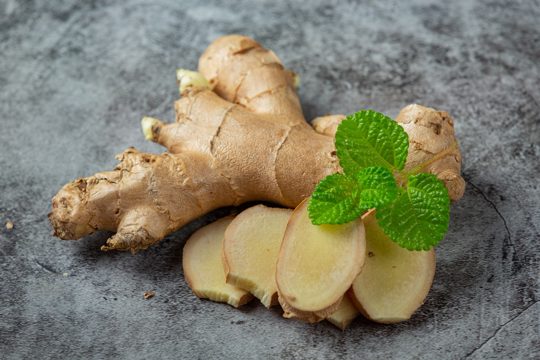
It's no wonder that ginger has become a go-to health booster for many. Moreover, the health benefits of ginger extend beyond just its anti-inflammatory and digestive properties.
It is also believed to help lower blood sugars, reduce menstrual pain, and ward off the risks of heart diseases. Its versatility makes it an excellent addition to various dishes, beverages, and even skincare routines, thus easily integrating into daily life. So, the next time you come across this humble root, remember, it's much more than a kitchen staple - it's a superfood that promotes holistic health.
5. Beets
Beets are packed with essential nutrients like B vitamins, iron, manganese, copper, magnesium, and potassium. Beets, nature's rubies, are an incredibly rich source of essential nutrients, making them a fantastic addition to your daily diet.
These vibrant root vegetables are brimming with a wide array of valuable vitamins and minerals. Among these, B vitamins stand out, working behind the scenes to support energy production and a healthy nervous system. They also contain iron, a crucial element that helps in the production of red blood cells, bolstering your body's ability to transport oxygen effectively. But that's not all; beets are a goldmine of manganese, a trace mineral that plays a vital role in maintaining good brain health and nerve function.
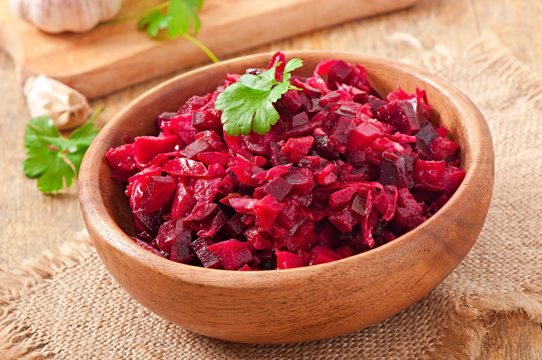
They also come loaded with copper, a mineral that aids in numerous bodily functions, including iron utilization and elimination of free radicals. Magnesium, another superstar mineral found in beets, is essential for over 300 biochemical reactions in our bodies, including nerve and muscle function, and maintaining a healthy immune system, bone health, and stable heartbeat.
Moreover, these crimson powerhouses are rich in potassium, a mineral and electrolyte that's essential for the proper functioning of heart, kidneys, muscle tissues, nerves, and digestive system. So, whether you're roasting them for a hearty side dish, juicing them for a nutritional boost, or incorporating them into your salads and soups, beets are a delicious and versatile way to ensure your body gets the nutrient-rich fuel it needs to function at its best. With their sweet, earthy taste, and their proven health benefits, it's clear that beets are a dietary superstar that deserves a place on your plate.
6. Garlic
Garlic is well-known for its health benefits, including its ability to combat sickness, including the common cold. Garlic, a humble kitchen ingredient, has been celebrated for centuries for its remarkable health benefits.
This potent natural remedy is a veritable powerhouse of wellness, brimming with essential nutrients and medicinal properties that promote optimal health. Not only is it a fantastic flavor enhancer that elevates our culinary experiences, but it also serves as a protective shield for our bodies, securing them from various health-related adversities. Its prowess in combating sickness is particularly noteworthy. Garlic, with its potent antimicrobial and antiviral properties, is an effective weapon against many common ailments. It's like a trusted soldier in your health arsenal, always ready to fight off the intrusive germs. From the everyday common cold to more stubborn infections, garlic has proven its mettle in aiding the body's natural defense mechanisms.
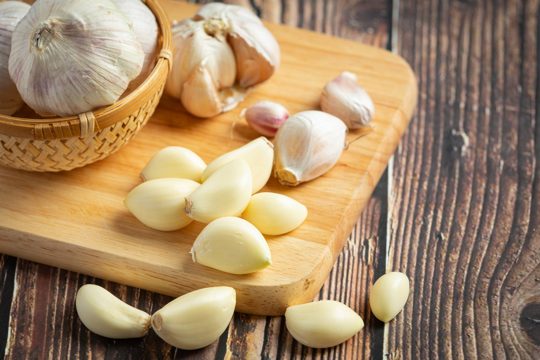
Consuming it regularly can help boost immunity, thus reducing the frequency and severity of colds and flu. But the health benefits of garlic extend far beyond fighting colds.
It is also known to maintain heart health, lower blood pressure, and even combat certain types of cancer. So, the next time you find a clove of garlic in your meal, remember you're not just adding flavor to your dish; you're fortifying your health. Incorporate garlic into your diet and embrace a healthier, more vibrant lifestyle. This simple yet powerful ingredient can be your first line of defense in promoting well-being and warding off diseases.
7. Radishes
Radishes are crunchy root vegetables that make a healthy addition to your diet. They are high in vitamins E, A, C, B6, and K.
Radishes, those vibrant, crunchy root vegetables, are not only visually appealing but also pack a mighty nutritional punch, making them a must-have addition to your dietary regimen. Often ignored in favor of more familiar vegetables, these hidden gems can surprise you with not only their distinctive peppery taste but also their multitude of health benefits. A powerhouse of essential nutrients, radishes are laden with vitamins E, A, C, B6, and K. Each of these vitamins plays a crucial role in maintaining your overall well-being. Vitamin E is an antioxidant that combats harmful free radicals in your body, while Vitamin A contributes to good eye health. Vitamin C helps in strengthening your immune system, and Vitamin B6 is vital for brain development and function.
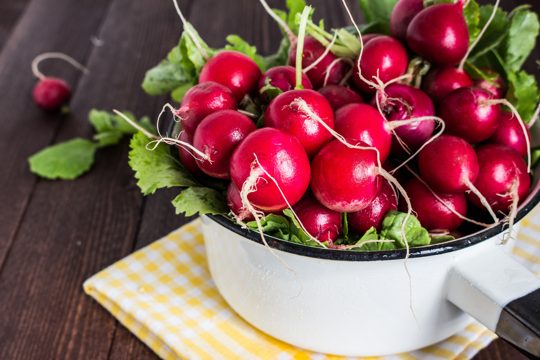
Lastly, Vitamin K plays a significant role in bone health and blood clotting. But the benefits of radishes don't stop at vitamins.
They are also a good source of antioxidants, fiber, zinc, and potassium. This makes them an excellent choice for those who are health conscious or looking to diversify their vegetable intake. The crisp texture of radishes adds a satisfying crunch to salads and coleslaws, while their unique flavor can elevate the taste of many dishes. So, the next time you're at the grocery store, don't overlook these nutritious root vegetables. Add radishes to your shopping list and start reaping their health benefits today!.
8. Fennel
Fennel is a flavorful root vegetable that can add a burst of flavor to your dishes. It is also packed with nutrients like vitamin C, calcium, magnesium, potassium, and manganese.
Fennel, with its unique licorice-like flavor and its abundant health benefits, can be the secret ingredient that will transform your meals into culinary masterpieces. This humble root vegetable, with its crunchy texture and slight sweetness, can add a delightful and unexpected burst of flavor to your dishes. Whether you decide to roast it for a comforting side dish, add it to your salads for a crunchy kick, or stew it to enhance your soups, fennel can seamlessly blend into a variety of recipes, elevating them to new gastronomic heights. However, the appeal of fennel is not limited to its taste alone. Packed to the brim with a plethora of nutrients, this root vegetable is a veritable powerhouse of health benefits.
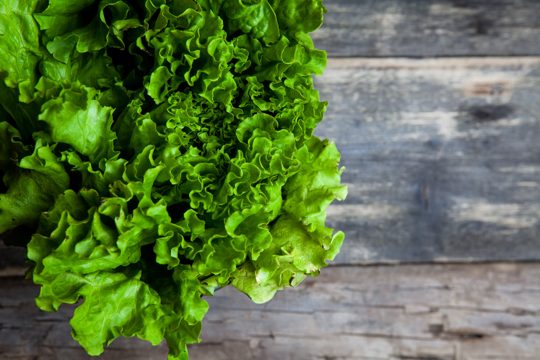
Each bite of fennel provides a generous dose of vitamin C, an essential nutrient that contributes to immune function and skin health. It is also rich in calcium, a mineral necessary for bone health, and magnesium, which aids in nerve and muscle function.
Moreover, its impressive potassium content helps regulate blood pressure, while manganese supports metabolism and nutrient absorption. Incorporating fennel into your diet can therefore be a delicious and nutritious way to diversify your meals and boost your health. From its distinctive flavor that can enhance a wide range of dishes to its impressive nutritional profile that supports overall wellness, fennel is indeed a versatile root vegetable that deserves a spot in your kitchen.
9. Carrots
Carrots are a particularly good source of beta carotene, fiber, vitamin K1, potassium, and antioxidants. Carrots, with their vibrant orange color and sweet, earthy flavor, are not only a versatile ingredient in our kitchens but also a powerhouse of nutrition.
They are a particularly good source of beta carotene, a compound that is converted into vitamin A in our bodies. This essential nutrient is known to improve vision, boost immunity, and promote healthy skin. Moreover, the fiber content in carrots is significant. Dietary fiber has a multitude of health benefits, including promoting a healthy digestive system, controlling blood sugar levels, aiding in weight management, and reducing the risk of heart disease. Vitamin K1, another crucial nutrient found in carrots, plays a pivotal role in blood coagulation. It aids in wound healing and is vital for bone health.

Let's not overlook the importance of potassium, which is necessary for nerve function and muscle contraction, and is integral to maintaining a healthy blood pressure. Antioxidants, the unsung heroes in carrots, are substances that help protect your body from free radicals and reduce the risk of chronic diseases.
They have been linked to a lower risk of heart disease and certain types of cancer. In conclusion, the humble carrot is a nutritional powerhouse, packed with beta carotene, fiber, Vitamin K1, potassium, and antioxidants. By incorporating carrots into our diet, we are choosing a path of wellness, vitality, and overall improved health. So, the next time you enjoy a crunchy carrot, remember you're not just satisfying your taste buds, but also nourishing your body with an array of essential nutrients.
10. Celeriac
Celeriac, also known as celery root, is rich in fiber and vitamins C and K and has fewer calories than most other root vegetables. Celeriac, often referred to as celery root, is a hidden gem in the realm of root vegetables.
This under-the-radar veggie is a nutritional powerhouse, packed with a wealth of fiber that aids in digestion and keeps you feeling full and satisfied. It's a fantastic choice for anyone seeking to maintain a healthy diet without sacrificing flavor. But the health benefits of celeriac don't stop at fiber. This humble root is also a rich source of vitamins C and K. Vitamin C is well-known for its immune-boosting properties, while vitamin K plays a critical role in bone health and blood clotting.

Therefore, adding celeriac to your diet can help support your body's natural defenses and overall well-being. Perhaps one of the most appealing characteristics of celeriac is its low-calorie content, making it stand out among other root vegetables that are often higher in calories.
This makes it an excellent choice for those who are watching their calorie intake or trying to lose weight. Its robust and earthy flavor can add depth to a wide range of dishes without adding unnecessary calories. In conclusion, celeriac, with its myriad of health benefits, is a versatile and nutritious addition to any meal. Whether you're a dedicated health enthusiast or just someone looking to mix up their veggie game, celeriac is a root worth rooting for.
11. Turmeric
Turmeric is a powerful root vegetable known for its anti-inflammatory effects and is a very strong antioxidant. Turmeric, a vibrant and potent root vegetable, has been garnering attention worldwide for its remarkable health-promoting properties.
Known for its distinctive yellow hue, it has been a staple in traditional Eastern medicine for thousands of years. This magical spice, often seen adorning the spice racks in kitchens, is celebrated for its powerful anti-inflammatory effects, making it a beneficial addition to any diet. In fact, it's so potent that it matches the effectiveness of some anti-inflammatory drugs, without the side effects. This attribute of turmeric can be attributed to curcumin, a natural compound it contains that fights inflammation at the molecular level.
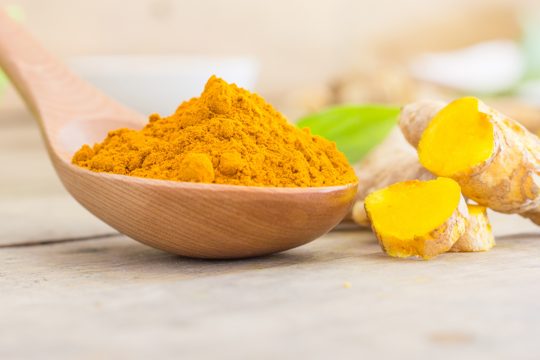
Beyond its anti-inflammatory prowess, turmeric is also a potent antioxidant. It neutralizes harmful free radicals in the body, which can damage cells and lead to chronic diseases.
But turmeric doesn't just fight free radicals; it also boosts the body's own antioxidant enzymes, offering a two-pronged approach to maintaining your health. Whether you're looking to manage inflammation, boost your antioxidant intake, or just add a dash of color and flavor to your dishes, turmeric is a versatile and powerful root vegetable that deserves a place in your pantry. Its incredible health benefits and easy incorporation into a variety of dishes make it a culinary and medicinal marvel. So, next time you're cooking, remember to reach for that jar of turmeric and infuse your meal with a touch of this golden wonder!.
12. Potatoes
Potatoes are a staple food in many households. They are an excellent source of vitamins C and B6, manganese, phosphorus, niacin and pantothenic acid.
A cornerstone of many dinner tables around the world, potatoes are not just versatile and delicious, but they also hold a surprising amount of nutritional value. Whether you prefer them baked, mashed, or cut into fries, these tubers provide an abundance of vitamins and minerals that are essential for maintaining good health. Digging deeper into their nutritional profile, potatoes are packed with vitamin C, a potent antioxidant that aids in the absorption of iron and boosts the immune system. In fact, a medium-sized potato contains nearly half of the daily recommended intake of this vital nutrient. Alongside this, they also provide a good dose of vitamin B6, a key player in brain cell and nerve function. This nutrient also plays a crucial role in synthesizing certain mood-enhancing hormones like serotonin and dopamine, which could potentially improve mental well-being.
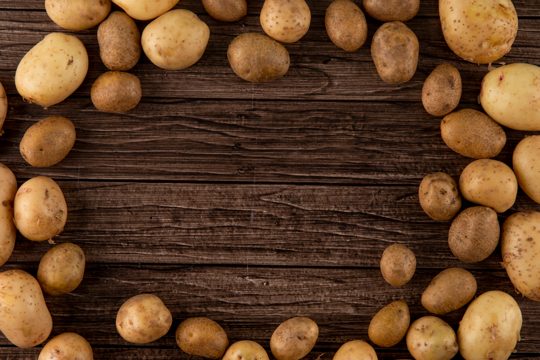
In addition to these vitamins, potatoes are a valuable source of manganese, a mineral that aids in bone health and metabolism regulation. They also offer a significant amount of phosphorus, a mineral necessary for the formation of DNA, RNA, and the energy molecule ATP.
Furthermore, they are equipped with niacin and pantothenic acid, members of the B-vitamin family. Niacin, also known as vitamin B3, plays a vital role in digestion, skin health, and circulation, while pantothenic acid, or vitamin B5, is essential for producing blood cells and converting food into energy. So, next time you're peeling potatoes for dinner, remember that you're preparing more than just a hearty side dish. You're offering a nutrient-dense food that contributes to a balanced diet and supports overall wellness. In essence, the humble potato is a nutritional powerhouse, hiding a wealth of health benefits beneath its earthy skin.
13. Rutabaga
Rutabaga, a close cousin of the turnip, is a root vegetable that contains a good amount of vitamin C, fiber, potassium, and antioxidants. The Rutabaga, often overlooked in the vegetable world, is a close cousin of the humble turnip and packs an impressive nutritional punch.
This underappreciated root vegetable is not only delicious but also brimming with a multitude of health benefits. Containing a generous amount of vitamin C, it aids in strengthening our immune system while also promoting healthy skin and faster wound healing. But the goodness does not stop there. Rutabaga is a fantastic source of dietary fiber as well. This high fiber content aids in maintaining a healthy digestive system, reducing the risk of constipation, and promoting a feeling of fullness, making it a great addition for those watching their weight.
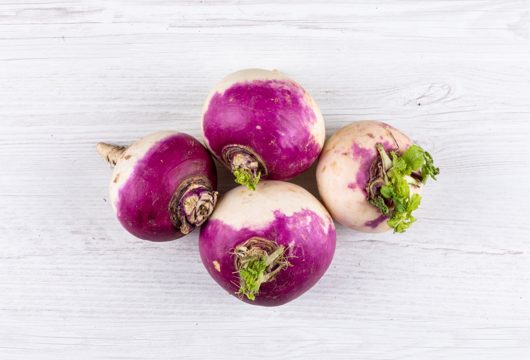
In addition to these, Rutabaga is also rich in potassium, a vital mineral that helps maintain healthy blood pressure levels and supports heart health. Finally, the antioxidants in this remarkable root vegetable help combat harmful free radicals in the body, potentially reducing the risk of chronic diseases and promoting overall well-being.
So next time you're at the grocery store, don't overlook the Rutabaga. This nutrient-dense root vegetable could be just the thing your diet needs to keep you feeling healthy and vibrant. Whether you enjoy it roasted, mashed, or added to your favorite stew, the Rutabaga is a versatile and healthful addition to any meal.
About us
Welcome to SeniorCaresHub! Welcome to our comprehensive senior care destination! We pride ourselves on being a trusted resource for all things related to caring for aging loved ones. We understand the unique needs and challenges that come with senior care, and our mission is to provide you with the information, resources, and support you need to confidently navigate this journey and help you provide the best possible care for your aging loved one.

